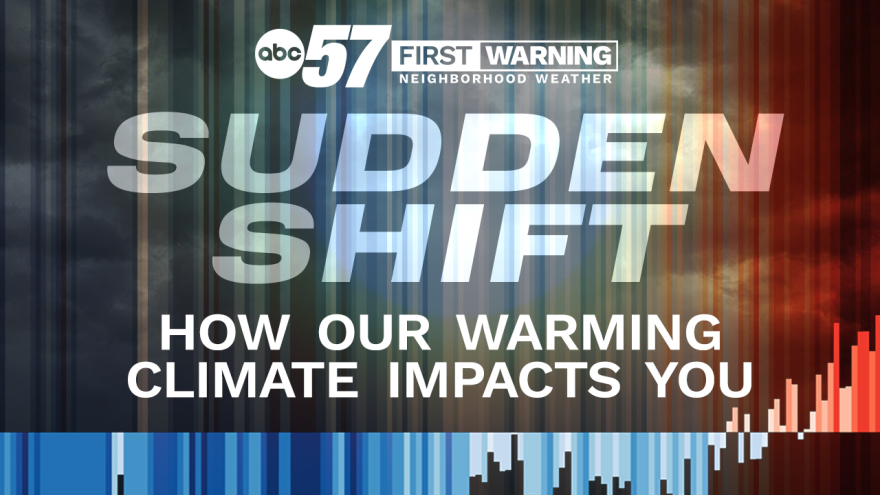Sudden Shift: Spring Planting Zones
Michiana is at the forefront of the warming climate, whose effects can be seen through the Plant Hardiness Zone Map (PHZM) and in the crop fields that supply our grain, hay, and vegetables.
Since standardized weather observations were established in the 1890s, our average winter low temperature has increased by about 4 degrees, or just under one half-zone shift on the PHZM.
Warmer winter low temperatures present several issues, two of which are changes in disease and types of crops that can be grown.
Tropical diseases like tar spot are becoming more frequent and arriving earlier in the growing season, destroying corn yields.
The warmer weather during winter is especially concerning because of how insect populations react to the lack of consistent below-freezing temperatures.
Crystal Van Pelt, a Purdue Extension Educator, said “These early warm-up periods, these false starts... [are] really impactful in how insect populations will be this year.”
February 2024 will go down as one of the warmest in history, but that is bad news for insects and farmers alike.
With at least one night of below-freezing weather still likely after meteorological winter ends, some populations of insects and pests that emerge prematurely because of the abnormal warmth will likely be killed off by a single night of cold weather.
Van Pelt continued, “...we might see some insect decline, but that is also true for our beneficial insects as well as our detrimental insects.”
As for changes in growing, be prepared to shift to more drought-tolerant crops that can withstand warmer weather for longer periods of time.
According to Van Pelt, “Something we’re seeing is a difference in the shoulder seasons, for those... growing vegetable crops in the Spring and Fall, such as kale and spinach and your cold weather crops.”
She further explained “...we’re not really getting a full Spring...temperatures are heating up and they [crops] are bolting and they’re not producing the vegetables that we are used to”
Planting and producing vegetables Michiana is not used to will likely become more normal as the Earth continues to warm.
But there is still time to correct course and help mitigate some of the negative consequences due to climate change.
Little changes like installing smart thermostats in homes or reusing rainwater can go a long way.
For those wishing to plant their own gardens, setting up controlled microclimates like greenhouses and hoophouses in backyards can regulate otherwise extreme temperature and precipitation differences between seasons.
More information on how the sudden shift in our climate is impacting Michiana’s seasons can be found here.















